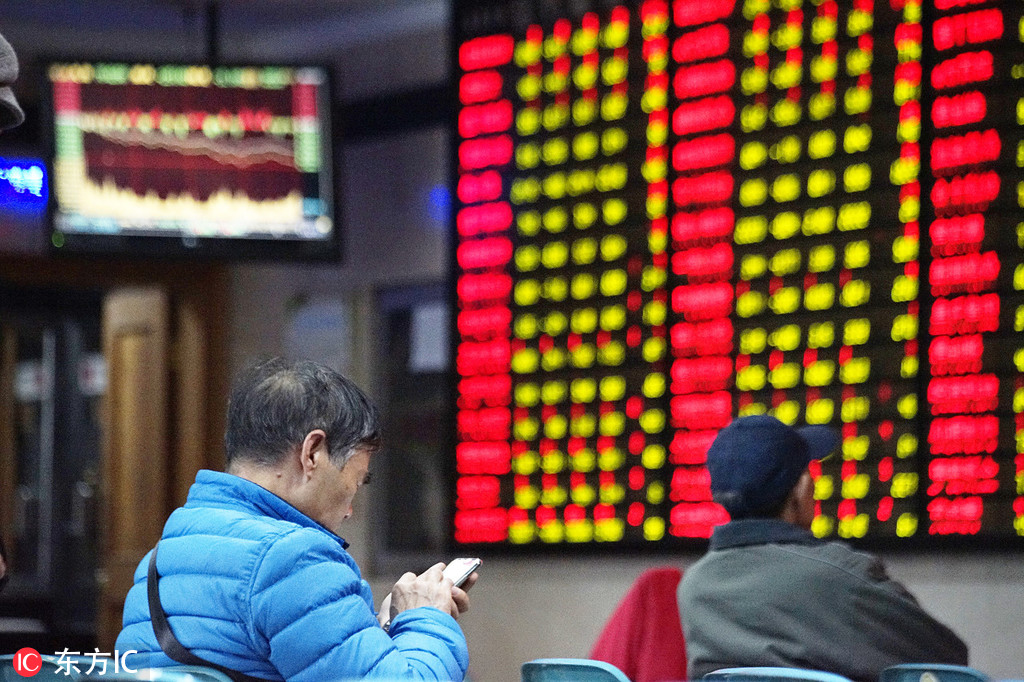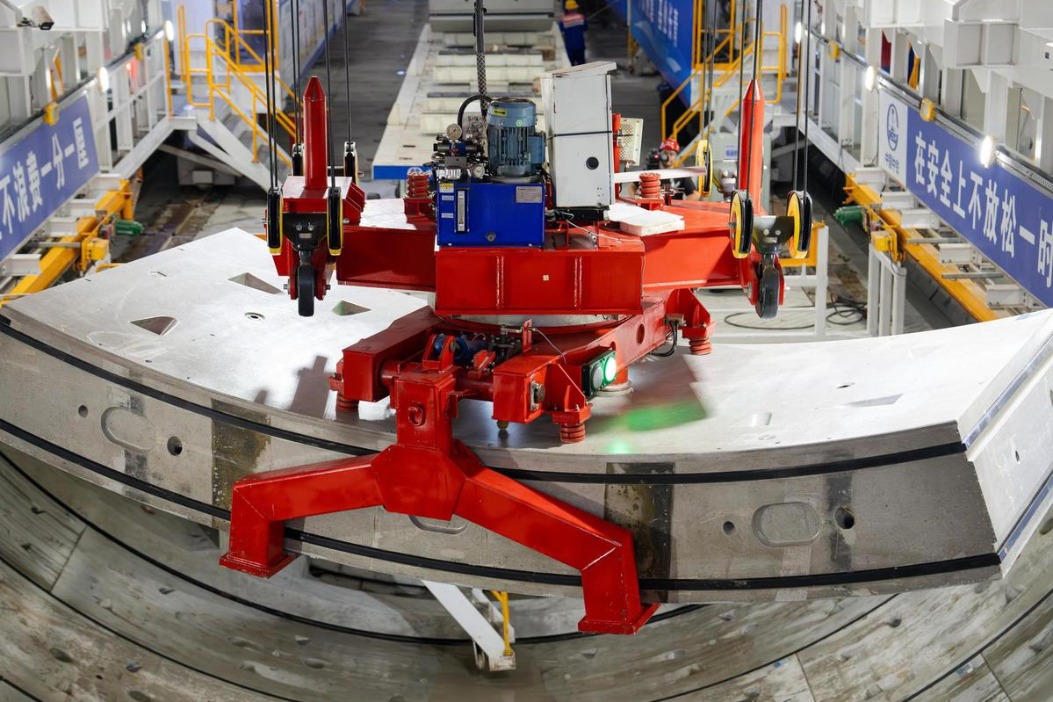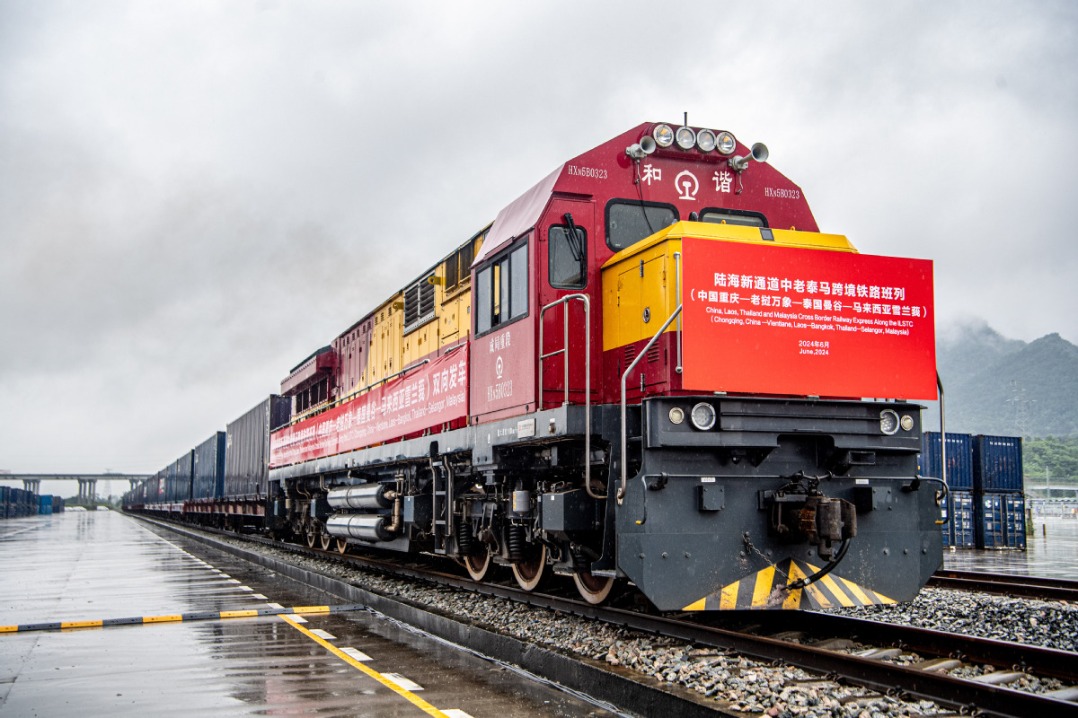Growing allure seen for China's A-share market


International investors who seek to optimize their portfolios look to mainland-listed stocks
China's A-share market will become more connected with the world in 2019, while showing much independence in stock performance, analysts said.
The trend is making A shares attractive for international investors to optimize portfolios, they said.
Zhang Dongyue, investment director of multi-asset and macro investing at London-listed Aberdeen Standard Investments, said that compared with shares listed on the Hong Kong bourse, Aberdeen will be weighted more heavily to mainland-listed A shares for portfolio diversification in 2019.
"Global investors should strengthen portfolio diversification, as volatility is intensifying amid economic slowdown and policy uncertainties," Zhang said.
Behind Aberdeen's positioning view is the A-share market's stronger independence from overseas markets, especially Wall Street.
After hitting a four-year low of 2,449.2 points during trading on Oct 19, China's benchmark Shanghai Composite Index has recovered from the year's plunge of nearly 25 percent. It closed 0.72 percent higher at 2,533.09 points on Monday.
Meanwhile, major overseas stock markets extended losses. From Oct 19 to Friday, the S&P 500 registered a drop of 8.6 percent to 2,531.94 points. Japan's Nikkei 225 was down 13.7 percent, and London's FTSE 100 was down 2.7 percent.
"Different from past scenarios, in late October the A-share market had reached its historically low valuation level, and investors have formed expectations of serial bailouts and market-boosting reforms," said Hong Rong, founder of investor education platform Hongda Education and an MBA tutor at the Shanghai Advanced Institute of Finance.
In late October, China vowed a slew of measures to mitigate pledged-share risks plaguing investors in the short term, and to spur the market's healthy long-term development.
Another factor defending Chinese stocks from foreign bourse contagion was that investors have become accustomed to the market volatility in the United States, Hong said.
Looking ahead, Zhang from Aberdeen is still optimistic about US shares. But he expects volatility to fester in 2019, as "the US economy is poised for slower growth with fading stimulus from tax cuts".
In 2019, it is considered unlikely that the US government will continue rolling out fiscal stimulus policies, while the Fed has not finished reducing its balance sheet. On the contrary, China is likely to introduce further easing measures to stabilize the economy, according to Zhang, who added that the divergence will probably make the A-share market's independence from its US counterpart stronger.
Gao Ting, head of China strategy at UBS Securities, said, "Trade and growth concerns have largely been priced in by A shares but will remain major sources of volatility in the US in the near term."
Xue Yi, an associate professor of finance at the University of International Business and Economics in Beijing, said a more independent A-share market in 2019 could help global investors weather volatility through risk diversification.
"Generally speaking, the stronger the independence in performance of China's A shares with US shares, the sharper reduction in risk if A shares are added to a portfolio that already allocates US shares," Xue said.
"For global investors, however, the attraction of the A-share market lies more in the investment targets it provides," Xue said.
Zhang Xia, chief strategy analyst at Shenzhen-based China Merchants Securities, expects an upside for A-share tech companies this year, considering the country's innovative boom and favorable policies.
The tech sector's bullish tone will further grow as the science and technology innovation board comes into force in 2019 as expected, Zhang said.
Gao from UBS Securities highlighted this year's opportunities associated with policies to stabilize China's economic growth.
A-share consumer names are offering long-term investment opportunities, Gao said. Foreign investors prefer those shares, and their participation in the market will be broader in coming years, he said.
Gao added that the Shanghai-London Stock Connect is likely to take effect in 2019, making A shares more accessible to global investors. The program will provide investors on both sides with access to equities on the other side.
The increasing presence of Chinese equities in global indexes is helping overseas investors better track returns from China, said Kevin Anderson, head of Asia-Pacific investment at State Street Global Advisors, one of the world's largest asset managers.
For this reason, in tandem with improved market accessibility and the importance of China to global growth, China's market now "merits a stand-alone allocation, not just sitting in the basket of emerging markets anymore", Anderson said.




































